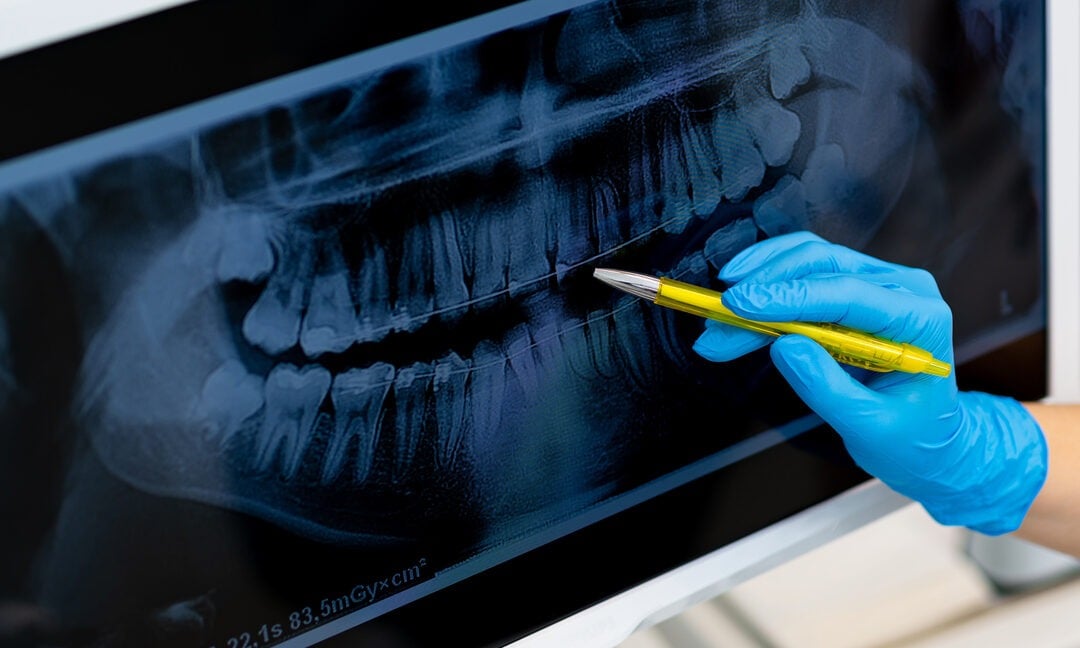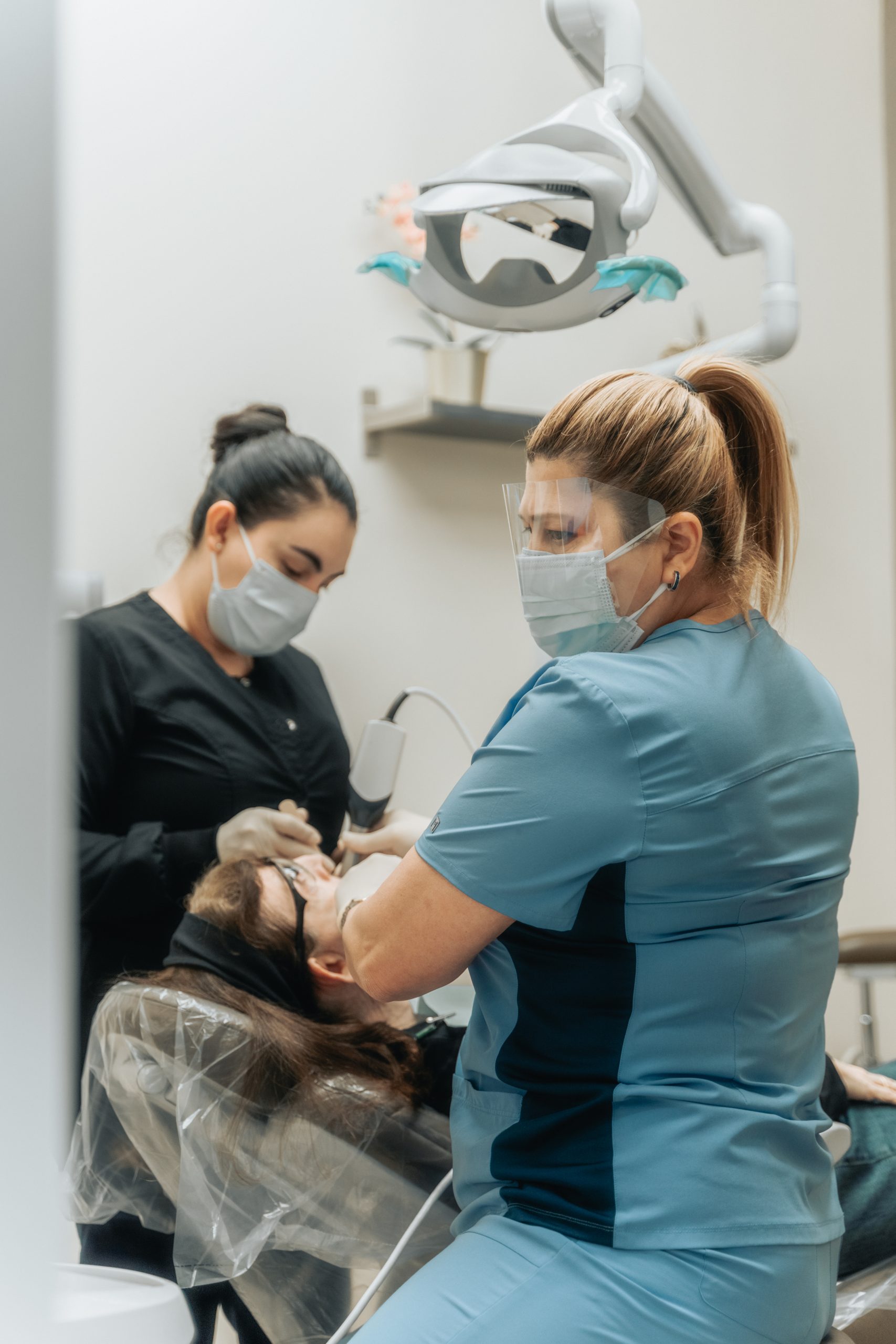What to Anticipate from Your Very First Visit to a Dentist in Eugene Oregon
What to Anticipate from Your Very First Visit to a Dentist in Eugene Oregon
Blog Article
A Guide to Typical Oral Conditions That Need a Dental expert's Care
Toothaches, for example, can be symptomatic of severe issues such as cavities, broken teeth, or abscesses, each calling for details interventions like dental fillings or origin canals. Impacted knowledge teeth and jaw disorders can introduce substantial discomfort and problems.
Toothaches
Toothaches are a common dental problem that can vary from light pain to serious discomfort, frequently suggesting an underlying issue that calls for expert attention. This discomfort can originate from a range of sources, including tooth decays, split or fractured teeth, and dental abscesses. Each of these conditions poses significant dangers if left unattended, possibly resulting in more severe issues.
Oral tooth cavities, likewise recognized as decays, are triggered by the buildup of plaque that erodes tooth enamel, leading to openings or pits in the affected teeth (dentists eugene). Split or fractured teeth, on the other hand, may result from trauma, grinding, or biting into difficult items. These structural problems can expose the sensitive inner layers of the tooth, triggering pain and enhancing the danger of infection. Abscesses are uncomfortable infections at the origin of a tooth or between a tooth and the gum tissue, generally resulting from severe decay or without treatment dental caries.
Effective therapy of toothaches includes addressing the origin. This might consist of fillings for dental caries, crowns for fractured teeth, or root canals and antibiotics for abscesses. Early treatment by a dental expert can prevent further deterioration and relieve discomfort, making sure optimum oral health and wellness.
Gum Illness
Periodontal illness, a prevalent yet commonly neglected oral problem, materializes through swelling and infection of the gum tissues and supporting cells. If left unattended, gingivitis can progress to periodontitis, an extra extreme type characterized by the destruction of the sustaining bone and connective cells, ultimately leading to tooth loss.
The primary source of periodontal illness is bacterial plaque, a sticky, colorless movie that continuously forms on teeth. Poor oral health, cigarette smoking, genetic predisposition, and specific clinical conditions, such as diabetic issues, can aggravate the danger of creating gum tissue illness. Normal dental examinations are important for early discovery and management of this condition.
Treatment for gum tissue disease ranges from specialist dental cleansing and scaling to more innovative procedures like root planing and gum surgical treatment, depending on the extent. Preserving great oral health practices, including cleaning two times daily, flossing, and using an antibacterial mouth wash, can dramatically decrease the risk of gum disease and promote healthier periodontals.
Cavities
Cavities, likewise understood as tooth decays, are a typical dental problem defined by the devastation of tooth enamel because of acid-producing bacteria in the mouth. These microorganisms thrive on sugars and starches from food and drinks, producing acids that progressively deteriorate the enamel, causing cavity development.
Early-stage cavities may disappoint signs, but as they proceed, they can cause tooth pain, level of sensitivity to warm or chilly, visible openings or pits in the teeth, and staining. If left without treatment, dental caries can pass through much deeper layers of the tooth, potentially resulting in serious discomfort, infection, and also tooth loss.
Preventing tooth cavities involves a mix of excellent oral check here health practices and nutritional behaviors. Normal cleaning with fluoride toothpaste, flossing, and regular oral examinations are important. Dentists may also recommend additional safety nets, such as fluoride therapies and dental sealers, to shield teeth from decay.
Minor dental caries can be addressed with oral fillings, which restore the tooth's structure. Much more advanced instances might call for crowns or also root canal therapy if the degeneration has reached the tooth's pulp.

Impacted Knowledge Teeth
Influenced knowledge teeth are a common oral concern that occurs when the 3rd molars, commonly described as knowledge teeth, fall short to completely arise or line up correctly within the mouth. This condition usually arises from insufficient area in the jaw or an abnormal growth angle of the teeth. Influenced knowledge teeth can cause a selection of issues, including discomfort, infection, and damages to nearby teeth.
When knowledge teeth come to be impacted, they are often partly appeared or stay entirely under the gum tissue line. This partial eruption can create a path for bacteria to get in the gum tissues, leading to infections that manifest as swelling, discomfort, and also fever. In addition, affected wisdom teeth can exert stress on surrounding teeth, possibly creating crowding or moving.
A detailed oral examination, generally involving X-rays, is important for detecting affected knowledge teeth. Treatment often entails surgical extraction, done by a dental cosmetic surgeon. The procedure aims to reduce pain and protect against additional difficulties, such as cysts or damage to surrounding bone structures. Post-operative care is vital to guarantee appropriate healing and lessen the danger of infection. Regular dental exams are suggested to keep track of the problem and preserve dental wellness.
Jaw Disorders
Jaw conditions, jointly referred to as temporomandibular joint (TMJ) disorders, encompass a series of conditions that affect the jaw joint and bordering muscle mass. These disorders can materialize through symptoms such as discomfort or tenderness in the jaw, difficulty eating, a standing out this article or clicking sound when closing the mouth or opening up, and also chronic headaches. TMJ conditions can arise from different factors, consisting of joint inflammation, jaw injury, or habitual behaviors like teeth grinding or jaw clenching.
Medical diagnosis of TMJ conditions commonly involves a detailed assessment by a dentist, including a physical assessment of the jaw, oral X-rays, and in some cases progressed imaging techniques like MRI or CT checks to evaluate the joint's problem. Treatment alternatives vary relying on the severity of the disorder. Non-invasive approaches such as physical therapy, oral splints, and drugs focused on reducing swelling and pain are typically first-line therapies. In more extreme instances, medical treatments may be required to fix structural issues within the joint.
Very early intervention by a dental expert is essential to internet protect against the development of TMJ disorders and to keep general dental health. Clients experiencing persistent jaw discomfort or dysfunction should seek timely evaluation and therapy.
Final Thought
Toothaches frequently show underlying concerns such as tooth cavities, broken teeth, or abscesses, requiring prompt treatment. Influenced wisdom teeth and jaw conditions likewise require professional attention to reduce pain and protect against further issues.
Dental dental caries, also understood as decays, are triggered by the accumulation of plaque that wears down tooth enamel, leading to openings or pits in the affected teeth. Abscesses are painful infections at the origin of a tooth or between the gum tissue and a tooth, generally resulting from serious decay or neglected tooth cavities.

Furthermore, impacted knowledge teeth can put in stress on surrounding teeth, potentially creating crowding or moving.
Report this page